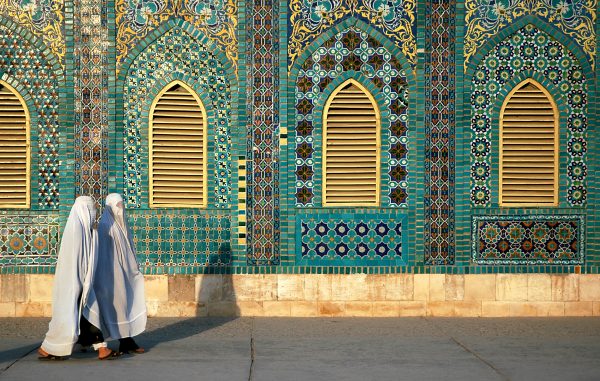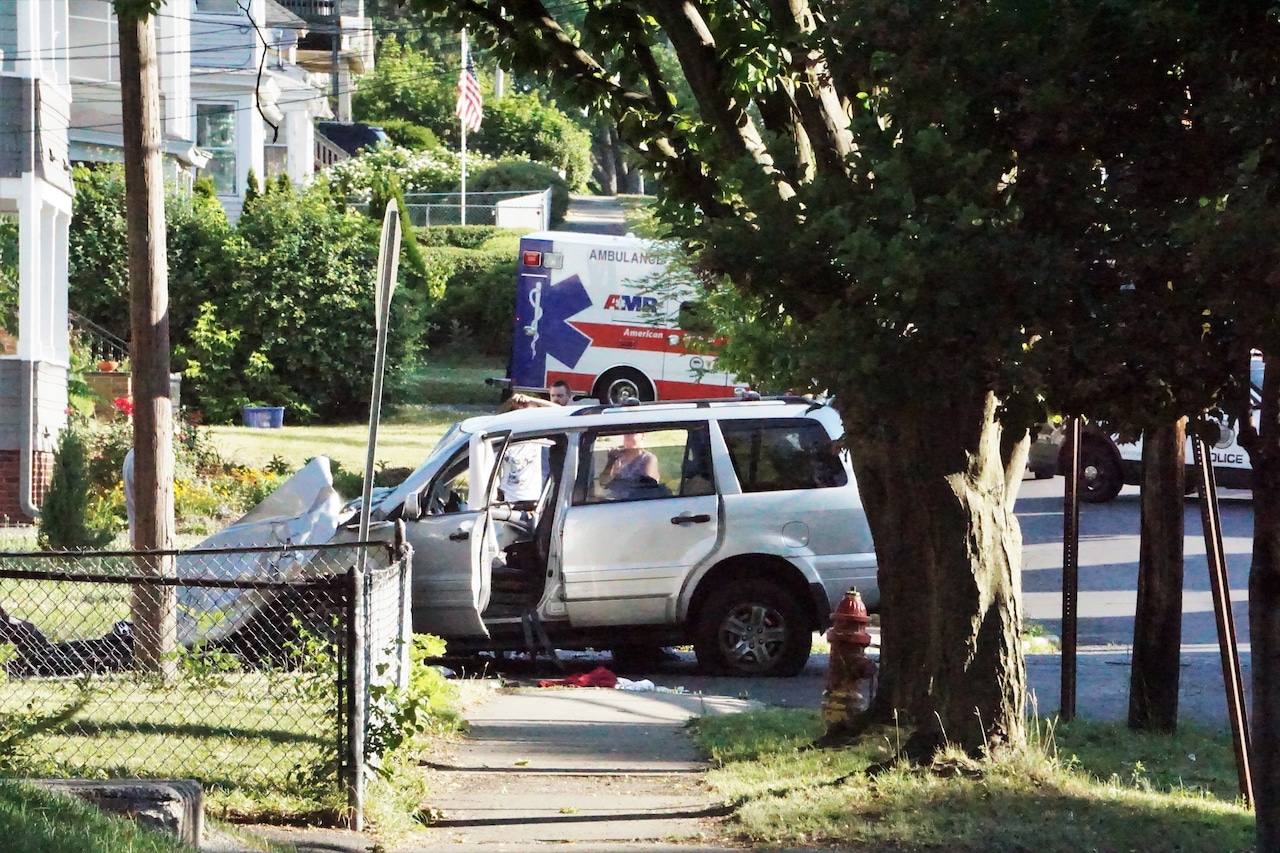By Eugene Volokh
Copyright reason

A plaintiff is generally required to travel to the district where his lawsuit is pending for his deposition. The basis for this rule is practical —in most cases, the plaintiff “has selected the forum.”
A plaintiff wishing to deviate from this general policy may bring a motion for protective order, pursuant to Federal Rule of Civil Procedure 26(c), demonstrating good cause for protection against “annoyance, embarrassment, oppression, or undue burden or expense[.]” To establish good cause, the moving party must demonstrate “specific prejudice or harm will result from the absence of a protective order.” As the Eastern District of Michigan recently explained:
The fact that depositions by remote means may be an economical and appropriate tool in some instances, at least where the parties agree on the means, or where extraordinary circumstances such as the medical infirmity of a deponent make an in-person examination unreasonably risky, does not mean that good cause has been shown to compel the taking of depositions by remote means across the board for all plaintiffs, based merely on the routine convenience and expense that is incident to participation in litigation by any party who chooses to file suit in a forum distant from their residence.
… Plaintiff offers four reasons for why he should receive protection from appearing in the United States for his deposition. He first alleges he is physically not permitted to enter the United States based on his citizenship and immigration concerns. Second, Plaintiff claims he is afraid of flying. Plaintiff thirdly asserts the travel costs would be unreasonable. And lastly, Plaintiff asserts Defendant will face no prejudice from a remote deposition.
Plaintiff’s Citizenship
First, Plaintiff alleges that he is not a U.S. citizen, that his green card expired in July 2025, and that he has no visa or paperwork allowing his entry to the United States. Nor can he apply for a travel visa, Plaintiff claims, because “there is a long waiting list for appointments” and even if approved, “there is a long processing time for tourist visas.” As set forth in Mr. Raft’s Declaration [Raft is defendant’s former immigration lawyer -EV], Plaintiff believes he has abandoned his legal permanent resident (“LPR”) status in the United States due to his extensive absence. He claims to have not entered the United States since sometime in 2020 or longer. Mr. Raft opines that Plaintiff would face a substantial risk of potential detention upon his arrival in the United States and placement in removal proceedings were he to attempt entry based on his likely abandoned LPR status. Plaintiff relies on another case from this District, Murillo v. Dillard, to argue that a lack of immigration paperwork is the type of difficulty or expense warranting protection from conducting a deposition in the United States.
Defendant responds that Mr. Raft’s Declaration, while informative, does not accurately portray Plaintiff’s immigration status because he is only offering opinion on what could happen if Plaintiff returned to the United States using his LPR status. The Declaration, Defendant argues, is silent on whether Plaintiff could apply for a returning resident visa or travel visa even if his LPR
status is abandoned. Defendant also emphasizes that Plaintiff has strong ties to the United States, specifically owning a home in Northern Kentucky and having affiliations with organizations there, as well as strong business ties in other countries, including Niger, Senegal, Mali, and the United Arab Emirates. Plaintiff’s connections and financial circumstances, Defendant explains, set him apart from other foreign nationals seeking to enter the United States. To conclude, Defendant states Plaintiff has provided speculation but no concrete evidence on his ability to travel to the United States.
A plaintiff’s ability to secure a visa for travel does not necessarily constitute good cause for avoiding an in-person deposition. For instance, in Charr v. King, the Southern District of Florida found that the plaintiff should have “foreseen and appropriately managed the visa requirements in light of him initiating this litigation ….” Likewise, in Azizpur v. AAA Life Insurance Company, the Central District of California found plaintiff had not established good cause to prevent travel from Iran to the United States for his deposition where the plaintiff did not “show any diligence in trying to enter the United States.” Like the plaintiffs in Charr and Azizpur, Plaintiff has not attempted to obtain a visa to enter the United States for purposes of his deposition.
Murillo v. Dillard, relied upon by Plaintiff, is distinguishable. In that case, the court ordered defense counsel to travel to Mexico to take the depositions of the plaintiffs, a group of twenty-four impoverished migrant farm workers with expired H-2A visas. Based on the plaintiffs’ declarations, the court determined their current immigration status made travel to the United States for the depositions “potentially impossible.”
Plaintiff here is a single individual, with no financial hardship, that has only speculated as to his current citizenship. Mr. Raft’s Declaration states what could happen if Plaintiff attempted to reenter the United States using his possibly abandoned LPR status. But Plaintiff has not shown, by Mr. Raft’s Declaration or otherwise, that he is ineligible to apply for a travel visa or to enter the United States. Troubling, also, is Plaintiff’s representation during the hearing that he plans to travel to the United States for trial in the case. If his LPR status is abandoned, as he alleges, he will have to obtain a travel visa that he currently claims would take many months and would be an undue burden. Since filing this action nineteen months ago, Plaintiff has known that he would need to physically appear in the United States for trial and for his deposition yet made no attempts to secure the required citizenship and travel documents. Without demonstrating diligent efforts, the Court cannot find good cause for protection on these grounds.
[B.] Plaintiff’s Fear of Flying
Plaintiff alleges a “documented fear of flying” due to his witnessing two colleagues being badly burned in an airplane crash in 2012. Plaintiff accuses Defendant of exploiting this fear and inflicting further emotional distress by requiring Plaintiff to take flights that could total “well over 24 hours.” To challenge Plaintiff’s purported fear of flying, Defendant produces an article from the African Leadership Magazine, reporting that Plaintiff was flying to London in June 2025 for a summit.
Defendant’s production of the article from the African Leadership Magazine calls into question the extent and effect Plaintiff’s purported fear of flying has on his ability to travel internationally. As do Defendant’s unrebutted allegations that Plaintiff owns a private plane. Additionally, Plaintiff does not provide, and the Court has not independently located, any case law where a plaintiff’s fear of flying has qualified as good cause for protecting Plaintiff from traveling for his deposition. {On the contrary, at least one court has recognized that a party’s fear of flying should not “require someone else to take to the skies[.]”}
[C.] Travel Costs
Based on internet searches, a roundtrip ticket from Mauritania to Louisville would cost nearly $5,000.00, which Plaintiff characterizes as “significant and unnecessary.” Plaintiff believes being forced to shoulder such travel expenses amplifies the damage inflicted by Defendant’s publication of false statements on Facebook. Defendant responds that Plaintiff is a multi- millionaire, perhaps billionaire, who owns multiple international businesses, including an airline. And Defendant argues that even if Plaintiff cannot use his private aircraft to travel for his deposition, commercial flights are available from Mauritania to Louisville for as low as $1,300.00.
A plaintiff attempting to avoid an in-person deposition due to financial hardship must submit pertinent information about his financial circumstances. Whether flying from Mauritania to Louisville is expensive and whether Plaintiff can afford such an expense are separate inquiries. Plaintiff must prove he is unable to afford the expense of the travel.
But Plaintiff only vaguely claims the travel costs are unreasonable. He does not state he cannot afford such an expense. And Plaintiff did not rebut Defendant’s allegations from either the pre-conference memorandum or during the hearing regarding his substantial wealth. Because Plaintiff submits no information regarding his financial circumstances to prove hardship, the expense of travel does not constitute good cause for protection from an in-person deposition.
[D.] Prejudice to Defendant
Finally, Plaintiff argues that conducting his deposition remotely would not prejudice Defendant. Plaintiff emphasizes the issues in the case are straightforward, the deposition would be limited in scope, and Defendant has not served any discovery in this case thus far. Defendant, on the other hand, maintains prejudice a remote deposition is prejudicial because nuances in the Plaintiff’s behavior and demeanor would not translate over virtual platforms.
Other courts have recognized that remote depositions preclude “assessment of a deponent’s demeanor, affect, non-verbal responses, and facial expressions.” The credibility of the plaintiff, as the initiating party to the litigation, is “presumably critical,” heightening the need for accurate assessment. Beyond credibility issues, a remote deposition can present additional logistical challenges, including adapting to time differences, ensuring the deponent’s appropriate behavior, and translation issues.
Even though the issues in this case are relatively straightforward, Plaintiff will be providing testimony critical to the emotional distress and reputational harm he endured from the Post. This could result in emotionally charged testimony, heightening the need for Defendant to assess Plaintiff’s credibility in person. The Court, therefore, finds the prejudice Defendant could suffer from Plaintiff’s remote deposition counsels against entry of a protective order.



